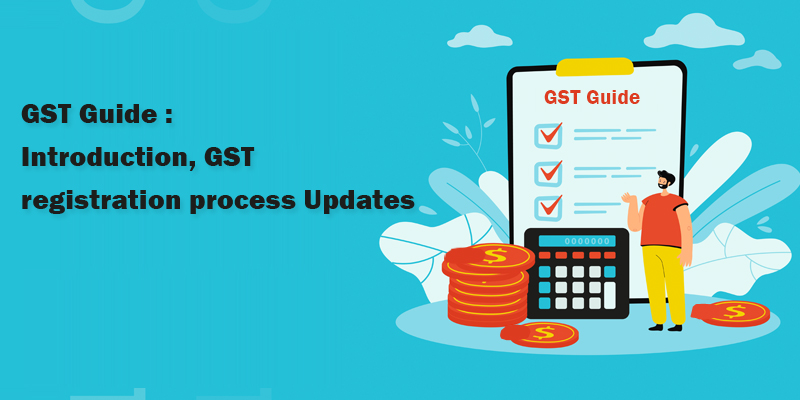
Please Wait transaction is in process, don't refresh page and do not press back button.
File your ITR Now and Claim Early Refund

What is GST
GST, which stands for Goods and Services Tax, is a consumption tax levied on the supply of goods and services at each stage of the production and distribution chain. It is a comprehensive indirect tax that aims to replace multiple indirect taxes such as excise duty, service tax, and value-added tax (VAT) with a single tax.
Under the GST system, businesses are required to charge GST on the sale of goods and services, and they can claim credit for the GST they have paid on their purchases. This ensures that tax is paid only on the value added at each stage of production or distribution, thereby eliminating tax cascading and making the tax system more efficient.
GST is implemented in many countries around the world, including India, Canada, Australia, and Singapore, albeit with variations in rates, exemptions, and specific rules depending on the jurisdiction. It is considered a significant tax reform aimed at simplifying the taxation system, enhancing compliance, and promoting economic growth.
Who should get registered under GST?
Under the Goods and Services Tax (GST) system, businesses involved in the supply of goods or services are required to register for GST if their annual turnover exceeds the threshold set by the respective tax authority. The threshold may vary from country to country.
In many jurisdictions, such as India, the threshold for mandatory GST registration is based on the aggregate turnover, which includes the total value of all taxable supplies made by the business. However, certain categories of businesses are required to register for GST regardless of their turnover. These categories may include:
- Businesses making inter-state taxable supplies.
- Casual taxable persons making taxable supplies.
- Non-resident taxable persons making taxable supplies.
- Businesses required to pay tax under the reverse charge mechanism.
- Input Service Distributors (ISDs).
- E-commerce operators or aggregators.
- Businesses supplying goods or services through e-commerce platforms.
- Agents of a supplier.
- Those liable to deduct tax at source (TDS) or collect tax at source (TCS).
Documents/details required to register under GST
The specific documents and details required for GST registration may vary depending on the country and the nature of the business. However, generally, the following documents and information are commonly required for GST registration:
PAN Card: Permanent Account Number (PAN) card of the business entity or the proprietor/partners/directors, as applicable.
Proof of Constitution: This could be in the form of partnership deed, certificate of incorporation, memorandum of association, articles of association, etc., depending on the type of business entity.
Identity and Address Proof: Identity and address proof of the proprietor, partners, directors, or authorized signatory, which could be Aadhaar card, voter ID card, passport, driving license, etc.
Proof of Principal Place of Business: Documents such as electricity bill, rent agreement, or property tax receipt confirming the address of the principal place of business.
Bank Account Details: Bank statement or canceled cheque showing the name of the account holder, account number, MICR, and IFSC code.
Authorized Signatory Details: Details such as name, address, and photo ID proof of the authorized signatory who will be filing GST returns and conducting transactions on behalf of the business.
Business Activity Details: Description of the main business activities, including the goods or services supplied.
Proof of Turnover: Documents providing information on the turnover of the business, which may include audited financial statements, sales registers, or invoices.
Digital Signature: In some jurisdictions, digital signature certificates may be required for GST registration, especially for businesses that are mandated to file returns electronically.
Additional Documents: Depending on the nature of the business and specific requirements of the tax authority, additional documents may be requested.
What is GST registration process?
The GST registration process may vary slightly depending on the country's regulations, but here is a general outline of the steps involved in registering for GST:
Determine Eligibility: Ensure that your business meets the eligibility criteria for GST registration, such as exceeding the threshold turnover or falling into specific categories that require mandatory registration.Gather Required Documents:
Collect all the necessary documents and information required for GST registration, including PAN card, proof of constitution, identity and address proof, proof of principal place of business, bank account details, authorized signatory details, business activity details, proof of turnover, digital signature (if required), and any additional documents as per the requirements.
Online Registration: Most countries offer online registration portals for GST registration. Visit the official GST portal of your country and navigate to the registration section.
Fill Application Form: Fill out the GST registration application form with accurate details and upload the required documents as specified.
Verification of Details: Once the application is submitted, the tax authority will verify the details provided in the application and the documents uploaded.
Clarifications and Corrections: If there are any discrepancies or missing information in the application, the tax authority may seek clarifications or request corrections.
Issuance of GSTIN: Upon successful verification, the tax authority will issue a Goods and Services Tax Identification Number (GSTIN) to the business entity.
Notification: You will receive a notification confirming the GST registration along with the GSTIN.
Filing of Returns: After registration, the registered taxpayer is required to file regular GST returns as per the prescribed due dates.
Compliance and Renewal: Ensure compliance with GST regulations and renew the registration periodically as per the requirements of the tax authority.
Latest Post
House Rent Allowance (HRA) Exemption in ITR
11-February-2025
Tractor Insurance: Why It’s Essential for Your Tractor?
17-January-2025
Bike Insurance: How to file two wheeler insurance claim
15-January-2025
Tags